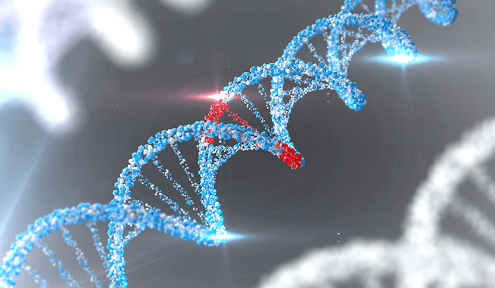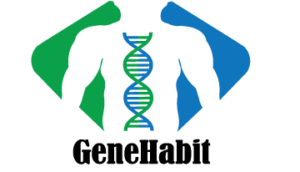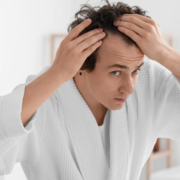Selenium for Hair Growth: The Mineral Your locks have been Waiting For!
 Selenium is a nutrient that’s needed for many important processes in the body, including metabolism and thyroid function. It can only be obtained through diet so it doesn’t have any negative health effects when taken at proper doses. Selenium is an important mineral that functions in the body to help protect against damage from free radicals and infections. Selenoproteins function as enzymes; proteins that are involved with DNA repair as well reproduction. Selenium is an important mineral for hair growth, and people have known this for years. It’s just that its role in the process was underestimated until recent studies came out confirming what we already knew: selenium helps with both the strength as well as thickness of your locks!
Selenium is a nutrient that’s needed for many important processes in the body, including metabolism and thyroid function. It can only be obtained through diet so it doesn’t have any negative health effects when taken at proper doses. Selenium is an important mineral that functions in the body to help protect against damage from free radicals and infections. Selenoproteins function as enzymes; proteins that are involved with DNA repair as well reproduction. Selenium is an important mineral for hair growth, and people have known this for years. It’s just that its role in the process was underestimated until recent studies came out confirming what we already knew: selenium helps with both the strength as well as thickness of your locks!
Role Of Selenium In Overall Health
Selenium is an important mineral that offers many health benefits. It is a powerful antioxidant that can help protect your body against oxidative stress and chronic conditions such as heart disease and cancer. Selenium can also boost your immune system, making you less susceptible to infections and illnesses. Getting enough selenium in your diet is essential for good health, so make sure to include foods that are rich in this nutrient.
What Role Does Selenium Play In Your Hair Health?
Selenium is a mineral that is important for hair health. It helps to protect the scalp and hair from damage and it also helps to keep the hair healthy and shiny. Selenium is also necessary for the production of thyroid hormones, which are important for overall health. If you are not getting enough selenium in your diet, you may experience hair loss or thinning hair.
How Deficiency Of Selenium Can Impact Hair Health
Selenium is an important mineral that our bodies need for optimum health. However, many people are not getting enough selenium in their diets, and this can lead to a number of health problems, including hair loss. When it comes to hair health, selenium plays an important role in keeping the scalp healthy and the hair follicles strong. It also helps to prevent dryness and itching of the scalp, two common problems that can lead to hair loss. Selenium deficiency has also been linked to dandruff and other scalp conditions.
If you think your hair loss is getting severe, get your selenium level tested.
How One Can Get Selenium? 
The recommended daily intake of selenium for adults is 55 micrograms. Good sources of selenium include seafood such as tuna and sardines, nuts such as Brazil nuts and cashews, and seeds such as sunflower seeds. Selenium can also be found in fortified foods such as cereal and bread. There are some people who cannot meet their selenium requirement from food alone. These people may need to take a selenium supplement. Selenium supplements are available in both pill and liquid form. You can manage your selenium levels in your food with DNA-based diet. It is important to consult a doctor before starting a selenium supplement, as too much selenium can be toxic.
Most Recommended Selenium Supplement Products by health experts are:
- Klaire Labs Seleno Met
- Pure Encapsulations Selenomethionine
- NOW Foods Selenium (yeast-free)
- Bluebonnet Selenium
- NOW Foods EpiCor Plus Immunity
How Genes Impact Selenium Absorption? 
Scientists have found that several genes play a role in the metabolism of selenium, which is an important mineral for many bodily functions. Genes that are involved in selenium metabolism include those that encode enzymes needed for selenium uptake, transport, and storage. Mutations in these genes can lead to abnormalities in selenium levels and potentially to health problems. Therefore, it is important to understand the role of genes in selenium metabolism in order to maintain health and prevent disease.
A study conducted on US adults displayed that individuals carrying a negative version of the GPX1 gene showed low selenium absorption and had severe hair loss issues along with thyroid dysfunction. When these individuals included selenium intake in their diet for 4 months trial their hair loss process slowed down significantly.
With DNA Test Mitigate Hair Fall Risk By Knowing Selenium Deficiency Risk
The DNA test can help to stop hair loss by determining if you have low selenium levels. The new strategy looks at an individual’s genetic profile and determines whether they are more likely to experience baldness or thinning in their scalps due to selenium or any other nutritional deficiencies, with this information doctors know exactly which supplements work best for them – meaning zero guesswork involved!
By Taking Up DNA Test You Can Mitigate These Hair Loss Conditions Before Its too late:
- Androgenic Alopecia
- Alopecia Areata
- Frontal Fibrosing Alopecia
- Telogen Eluvium
Selenium deficiency can lead to thinning or balding as well an increased risk of various other diseases such like thyroid dysfunction, mental retardation, and fatigue. DNA testing would be worth it!
If you like to know more about DNA tests and how vitamins-minerals are processed by our bodies for hair health visit here
DNA- Based Hair Loss And Hair Care Solutions With HairLife
Genetic testing for Hair loss reveals the risks for an individual for their hair loss, hair thinning, or premature greying. Genetic testing also identifies the cause of premature hair loss, greying, thinning, or baldness due to genetic factors, nutritional deficiencies, and stress.
Have a look at our products with consent links:
HairLife DNA test helps you to identify and understand the risk of premature hair loss, greying, thinning, and baldness due to genetic factors, nutritional deficiencies, and stress. HairLife DNA test also pinpoints the specific type of hair issue and helps you to get a personalized hair care solution for the same. This personalized hair care solution will be designed to keep your hair healthy and nourished. Your personalized DNA report provides recommendations for hairstyles, nutrition recommended supplements, and hair care products. Click here to read more about the HairLife test
GeneFit DNA Test provides a 360-degree personalized genetic insight about your lifestyle and well-being risks that include – the risk of weight gain or loss, nutritional deficiencies, food sensitivities, optimal fitness activities, sleep, and stress. Click here to read more about the GeneFit test.
NutriLife DNA test gives an insight into your micronutrient requirements based on your genetic report. Get personalized recommendations for essential nutrient intake with the NutriLife DNA test report and include the recommended food sources in your diet to maximize the health benefits. The genetic tests also identifies your food allergies, food sensitivities, and taste perception which impacts your food absorption in the body. Click here to read more about the NutriLife test














Leave a Reply
Want to join the discussion?Feel free to contribute!